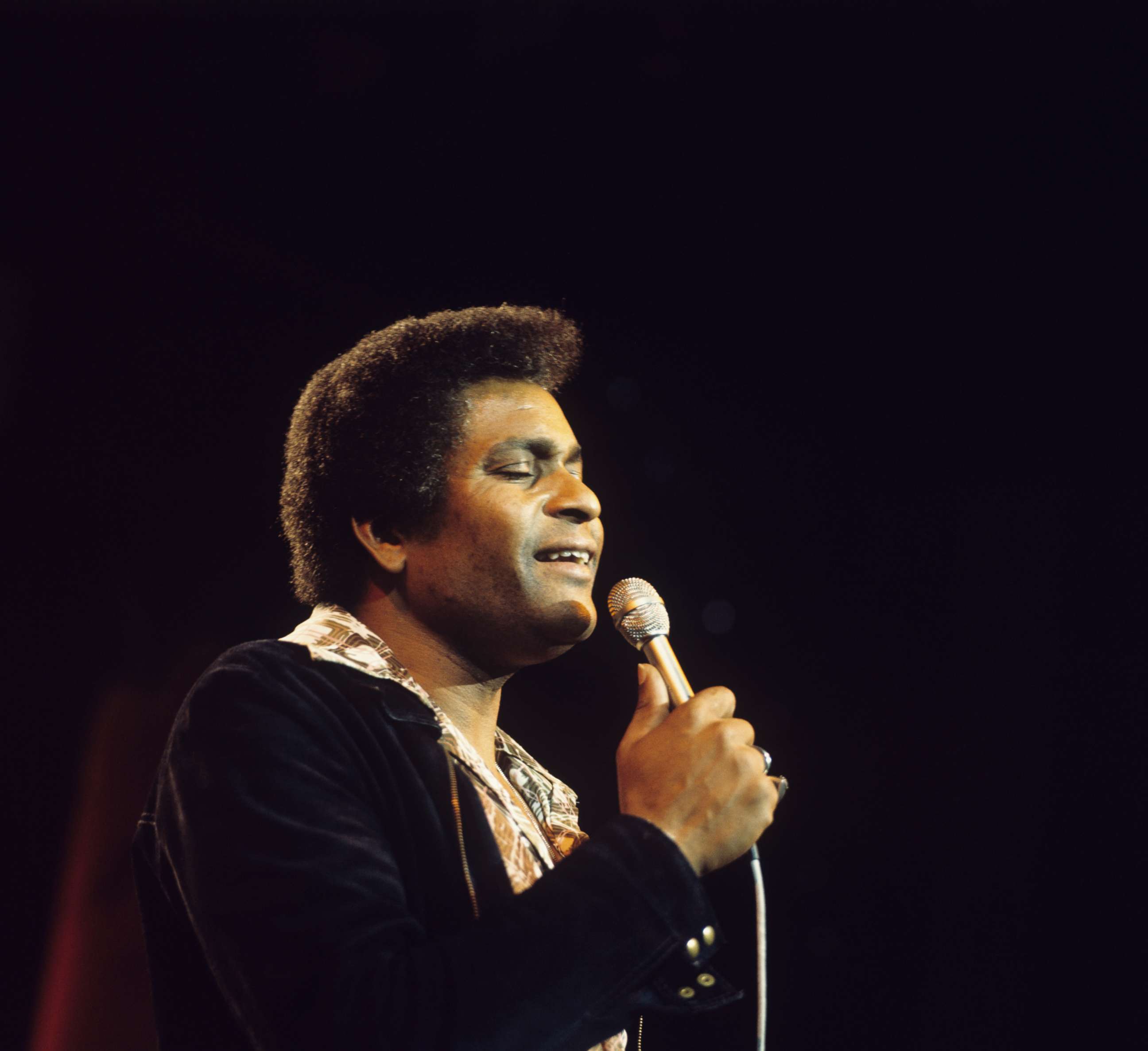Charley Pride, pioneering Black country music legend, dies of COVID-19 at 86
Pride was honored at the CMAs with a lifetime achievement award last month.
Charley Pride, the pioneering Black country music legend who topped the charts with dozens of songs, has died at 86 due to complications from COVID-19.
Pride died Saturday in Dallas, according to his representatives.
The singer was born in Sledge, Mississippi, to parents who struggled to make ends meet as poor sharecroppers. Pride took to music early but was also a talented baseball player. He played in the Negro Leagues for the Memphis Red Sox as a pitcher, stepping away from the sport to serve in the Army before returning again to the Red Sox.
Pride was honored with a lifetime achievement award at last month's CMAs. He also took to the stage to sing "Kiss An Angel Good Mornin'" -- the song he released in 1971 that would become his biggest hit. The performance would be his last.
Following Pride's death, comments questioning the safety attached to his appearance at the indoor CMA Awards, held at at the Music City Center in Nashville, Tennessee, flooded social media. Singer Maren Morris shared in a since-deleted tweet, "I don’t want to jump to conclusions because no family statement has been made, but if this was a result of the CMAs being indoors, we should all be outraged. Rest in power, Charley."
The CMAs and a representative for Pride responded to the speculation on COVID-19 concerns in a joint statement:
"Everyone affiliated with the CMA Awards followed strict testing protocols outlined by the city health department and unions," the statement read. "Charley was tested prior to traveling to Nashville. He was tested upon landing in Nashville, and again on show day, with all tests coming back negative. After returning to Texas following the CMA Awards, Charley again tested negative multiple times."
"All of us in the Country Music community are heartbroken by Charley’s passing," the statement continued. "Out of respect for his family during their grieving period, we will not be commenting on this further."

"Charley Pride is the epitome of a trailblazer," Sarah Trahern, CMA's CEO, said in a statement prior to his lifetime achievement award. "Few other artists have grown country music's rich heritage and led to the advancement of country music around the world like Charley. His distinctive voice has created a timeless legacy that continues to echo through the country community today. We could not be more excited to honor Charley with one of CMA's highest accolades."
Pride was signed to RCA in 1965 -- the same label as Elvis Presley. He became the label's top-selling country music artist, according to his representatives.
His first album, "Country," released in 1966, went gold, according to the Recording Industry Association of America. The prolific artist would release 41 studio country albums as well as two gospel albums and a Christmas album -- eight of which would be as certified gold.
He also had 29 singles reach No. 1 on the U.S country singles chart, including "All I Have to Offer You (Is Me)" -- his first No. 1 single in 1969 -- and "(I'm So) Afraid of Losing You Again," "I'm Just Me," "Is Anybody Goin' to San Antone" and "Mississippi Cotton Picking Delta Town." "Kiss An Angel Good Mornin'" would be his biggest mainstream hit, rising to No. 21 on the Billboard Top 100 chart.
He had No. 1 country singles in the 1960s, '70s and '80s.
He won three Grammy Awards, as well as a lifetime achievement award in 2017. He was inducted into the Country Music Hall of Fame in 2000.

Pride is survived by his wife, Rozene, whom he married in 1956, and three children, five grandchildren and two great-grandchildren.
Several country music superstars remembered Pride following his death.
"Charley Pride will always be a legend in Country music," Reba McEntire wrote on Twitter. "He will truly be missed but will always be remembered for his great music, wonderful personality and his big heart."
"So saddened to hear about the passing of Charley Pride. Prayers for his wife Rozene and his family," Martina McBride wrote.
ABC News' Andrea Dresdale contributed to this report.




